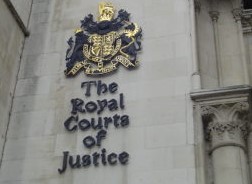The UK Supreme Court has decided that patients with permanent vegetative state (PVS) and minimally conscious state (MCS) can now be effectively starved and dehydrated to death if the medical staff and relatives agree that this is in their ‘best interests’.
People with PVS (awake but not aware) and MCS (awake but only intermittently or partially aware) can breathe without ventilators but need to have food and fluids by tube (CANH).
These patients are not imminently dying and with good care can live for many years. Some even regain awareness. But if tubal feeding is withdrawn, then they will die from dehydration and starvation within two or three weeks.
Until last year all cases of PVS and MCS have had to go to the Court of Protection before CANH could be withdrawn. Under the old rules, only about 100 applications to stop tube feeding have been made in more than 20 years, since the Tony Bland case created the precedent in 1993. But this could now hugely increase.
In two cases last year (known as M and Y) the High Court ruled that if the relatives and medical staff agreed that withdrawal of CANH was in the patient’s ‘best interests’ then the court need not be involved. The Official Solicitor appealed this decision to the Supreme Court in a hearing in February. The Supreme Court issued its judgement Monday effectively upholding the decision of the High Court.
















